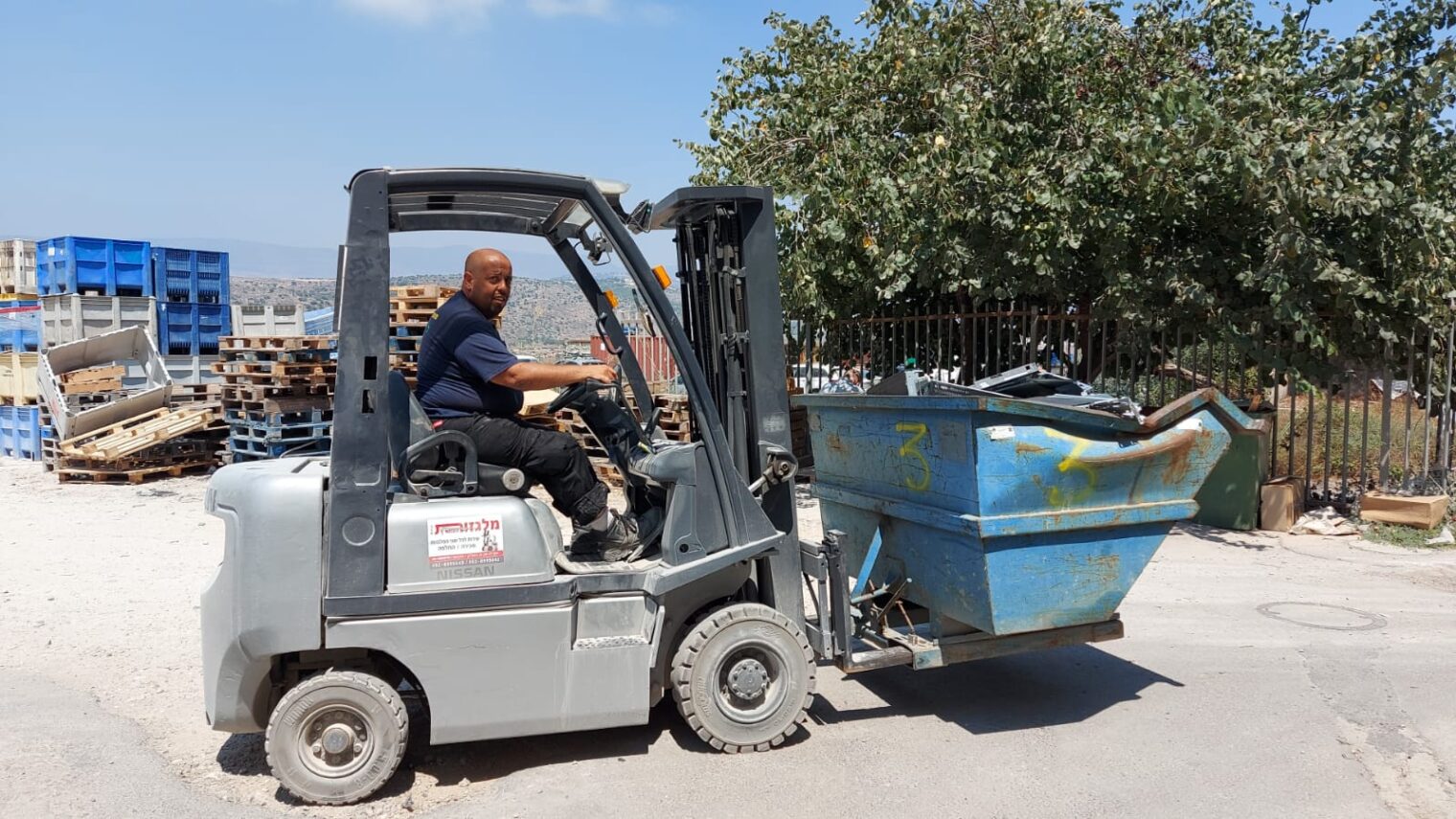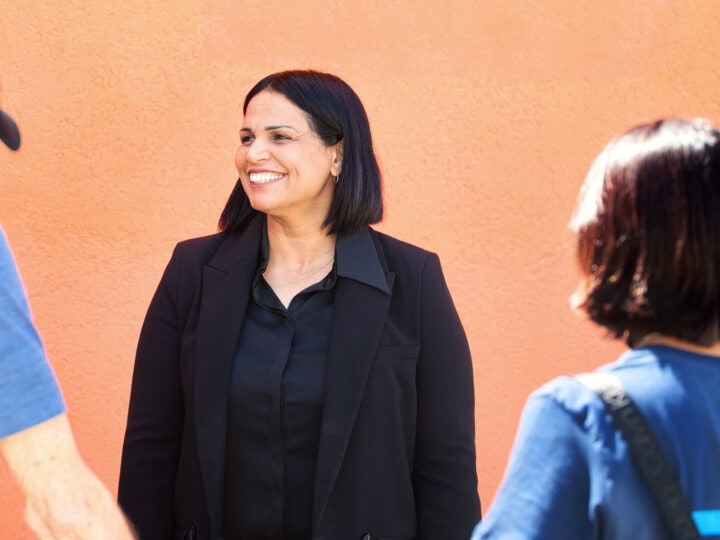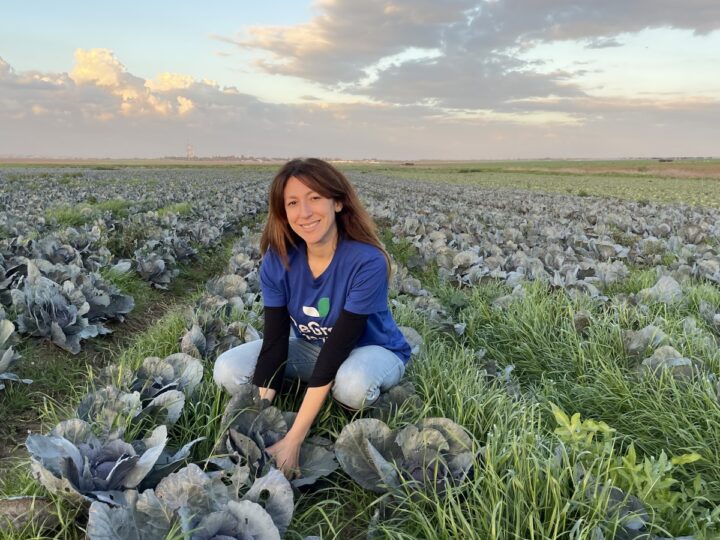Talk about a win-win-win situation: A man with an emotional disability and a woman with mild developmental disabilities found both meaningful employment and true love in an environmentally friendly enterprise.
Of course, not every employee of Ecology for Protected Community (Ecommunity) finds a life partner at work. But like that happy couple, they all earn a living at this Israeli social business for processing electronic waste.
Ecommunity solves two problems: the underemployment of people with disabilities and the growing environmental impact of e-waste.
“We employ 100 people, 80 of them with disabilities,” says Omri de Garcia, CEO of Ecommunity.
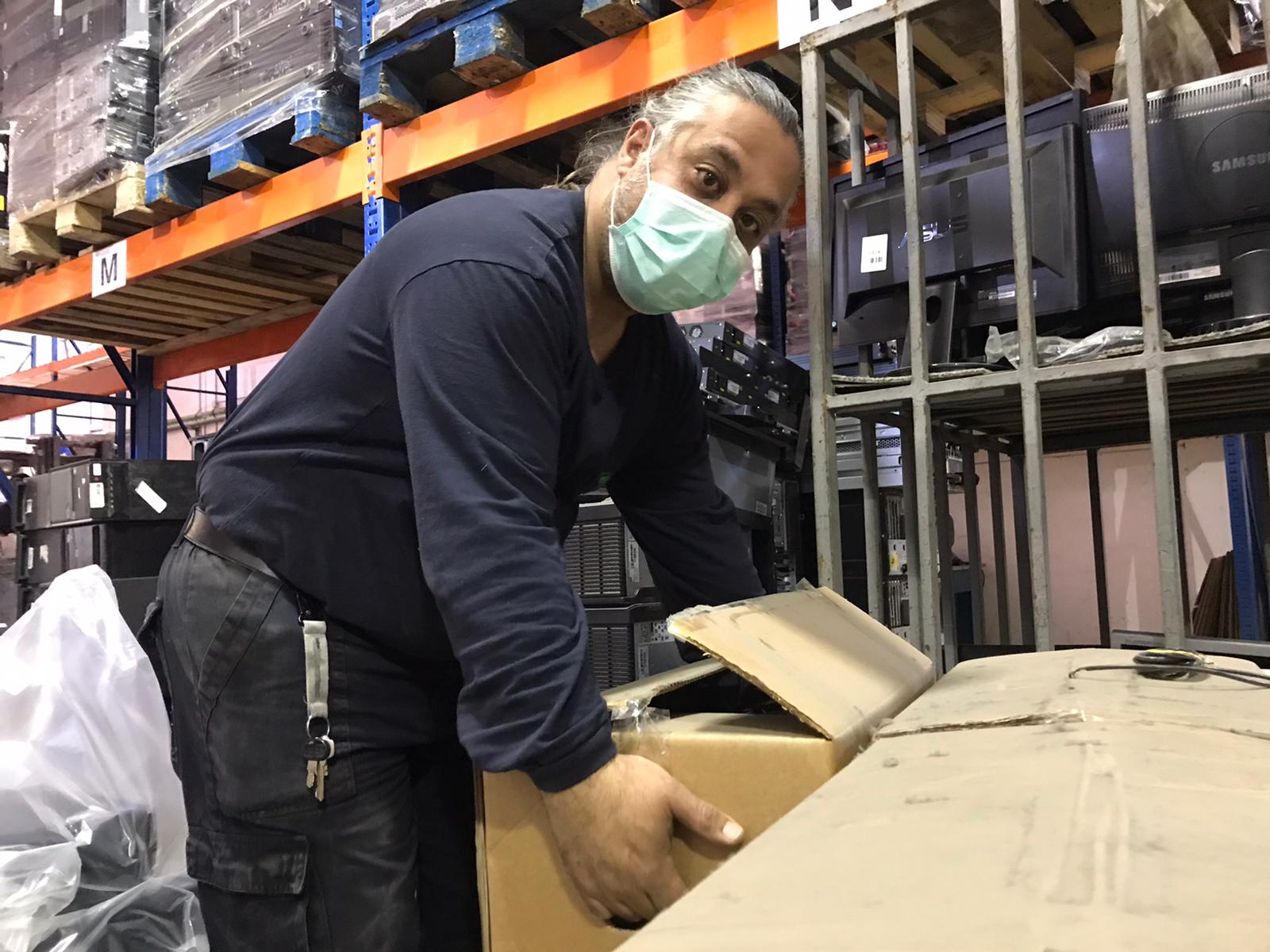
Israeli companies are required to have people with disabilities comprising up to 5% of their workforce.
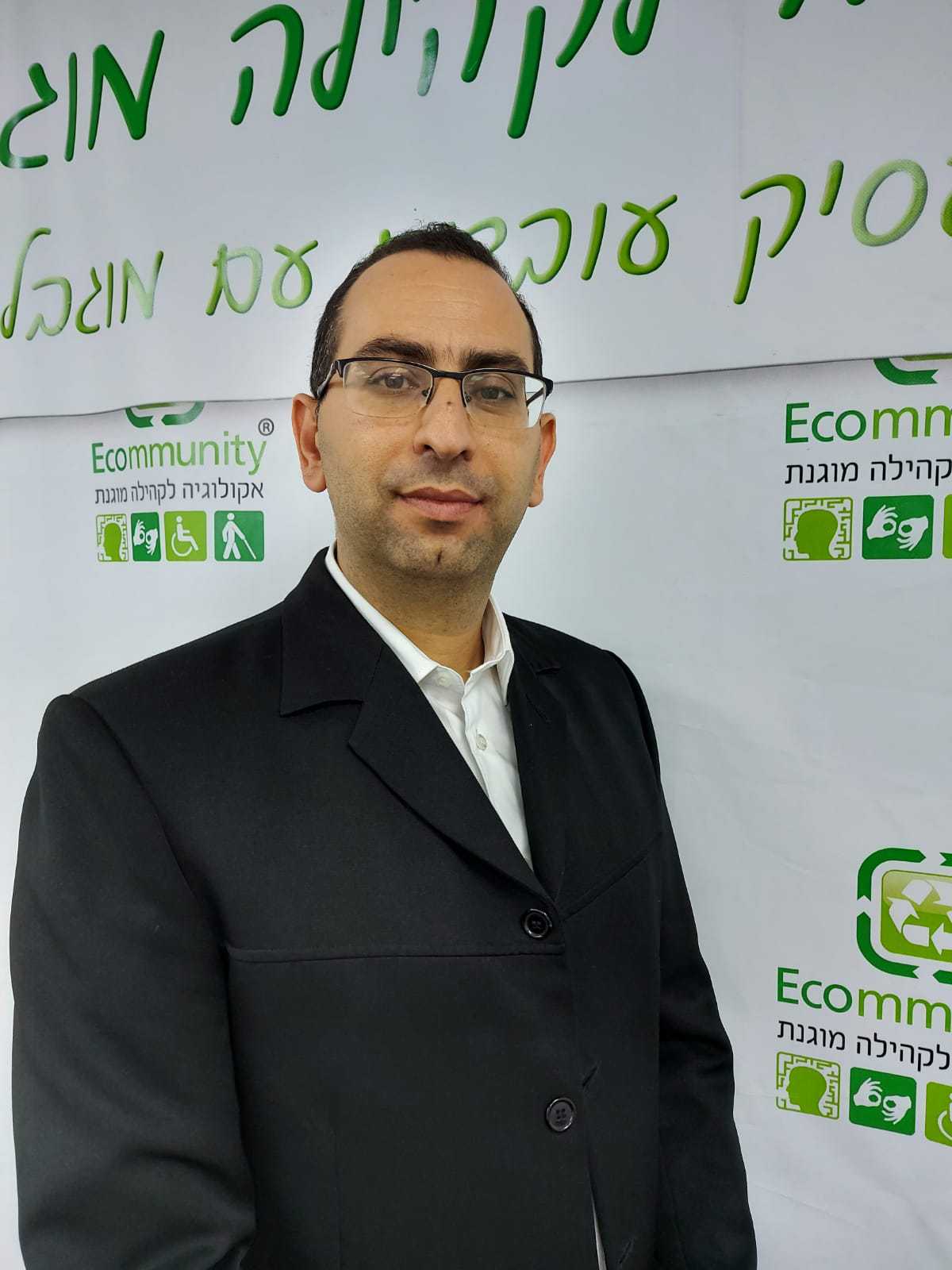
“Here, we show that a private company in the open market can have people with disabilities as 80% of its workforce and still make money,” says de Garcia,41.
Following a career in naval intelligence, de Garcia came to Ecommunity two years ago after meeting its founder, Danny Kogan. Kogan established the venture in 2007 after finding no viable employment options for his son with special needs.
Israel only mandated e-waste recycling six years later, making Ecommunity a critical partner in implementing that law.
But Kogan foresaw this as a way for adults with a range of disabilities to contribute to society, gain work skills and a daily routine, and earn realistic wages.
The e-waste crisis
The United Nations estimates that in 2019, 53.6 million metric tons of electronic waste was generated globally, and just 17.4% was collected and recycled. By 2030, e-waste is expected to reach 75 million metric tons annually.
“In Israel alone, we have 160,000 tons of electronic waste per year, such as air conditioners, refrigerators, ovens, computers, TVs, phones and batteries,” says de Garcia.
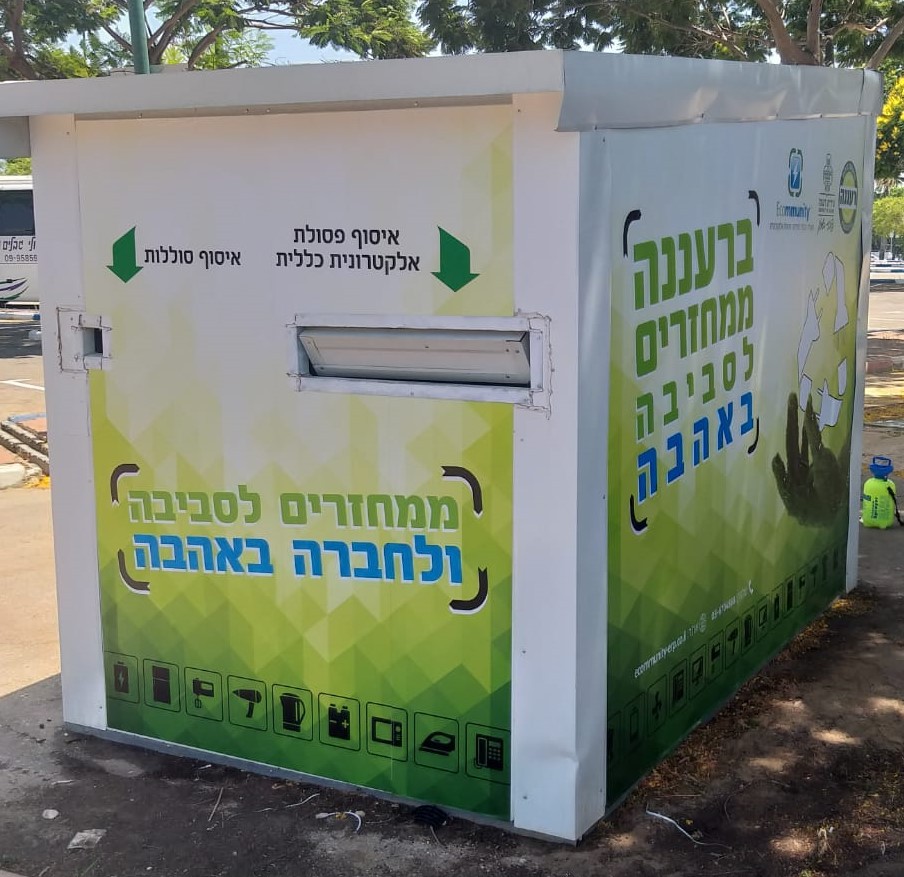
“Out of all the waste Israel produces, 3% is electronic but it causes more than 70% of the environmental and air pollution,” adds Ecommunity board member Omri Salner.
“The amount of e-waste rises each year, as does the disabilities population. We put them together to make a synergistic community.”
Hospitals, universities, businesses, government offices and other entities send their e-waste to Ecommunity. Between 2009 and 2019, Ecommunity processed more than 14.5 million kilograms (32 million pounds) of e-waste.
“All profits go back into the community for a social return on investment. In this way, we offer three benefits: ecological, social and economic.”
Ecommunity is the sole Israeli partner in the European Recycling Platform, an organization offering compliance solutions for electronic waste, batteries and packaging. Ecommunity also is an accredited partner in implementing the Israeli Environmental Protection Ministry’s Electronic Waste Act.
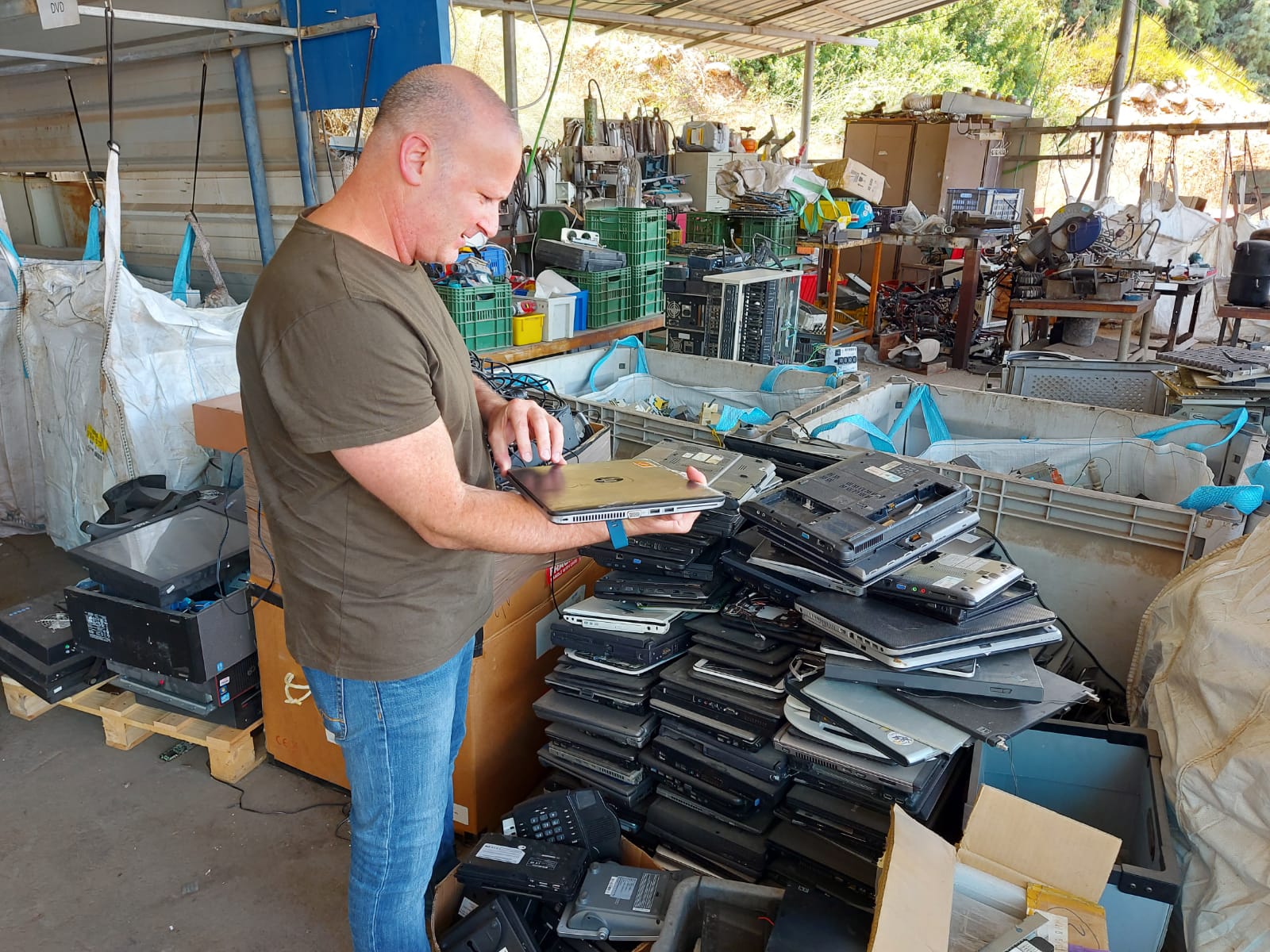
Recycle, refurbish, shred
Ecommunity encompasses recycling, refurbishing and shredding.
“In the recycling business, individuals who are low functioning take all electronic waste we cannot refurbish and break it down into component metals, which we sell to factories,” de Garcia says.
In the refurbishing vertical, high-functioning individuals are trained as certified technicians by companies including HP Dell, Lenovo and Apple to renew discarded computers.
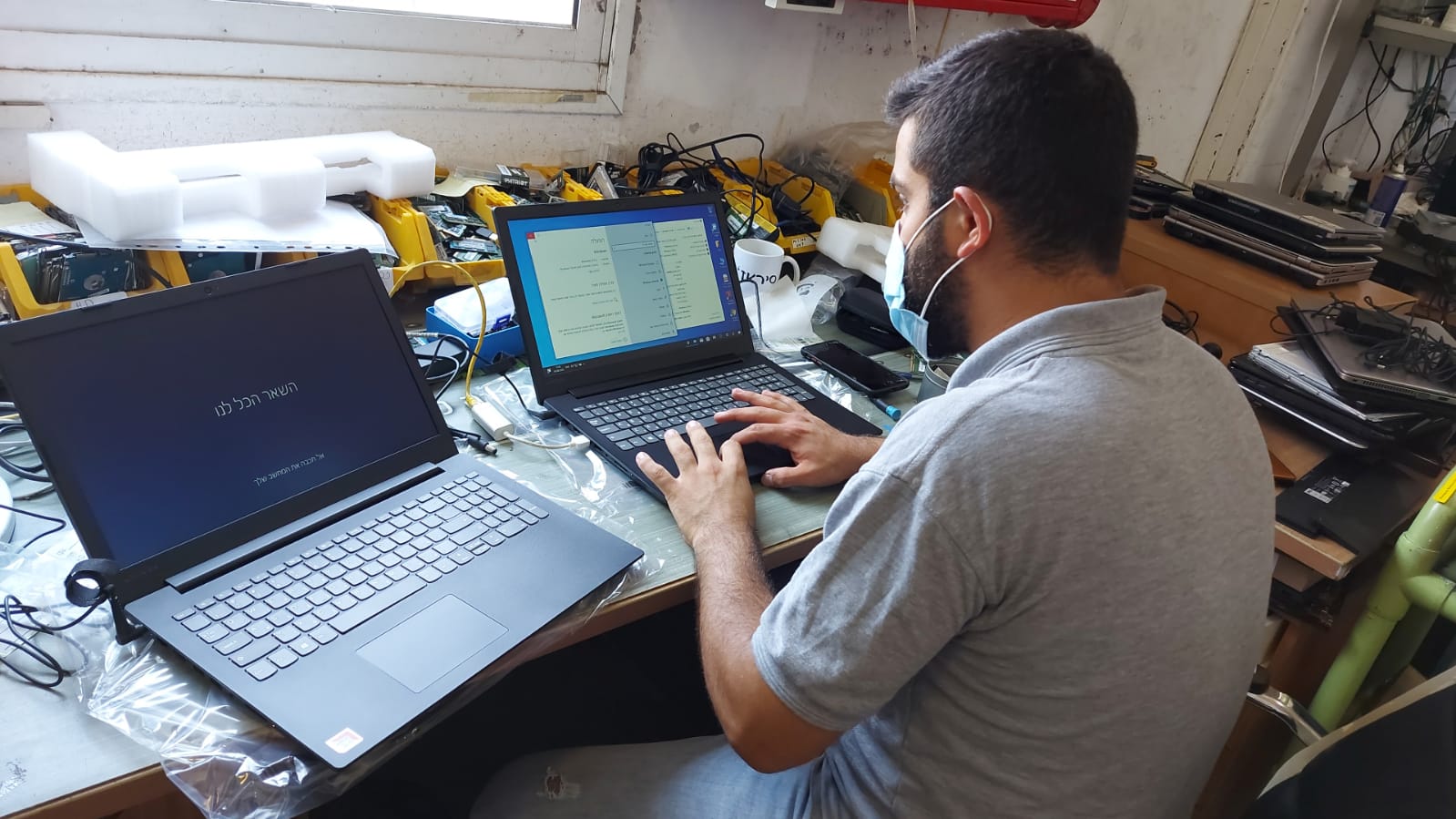
“Bank Hapoalim is one of our clients, moving all its electronic waste to our factory,” says de Garcia. “Twenty percent of that is refurbished and sent back to the bank to be distributed to families that cannot afford computers. Last year, almost 250,000 shekels’ worth was given out.”
This shows that “we can take waste and do something that makes a difference to society,” he adds.
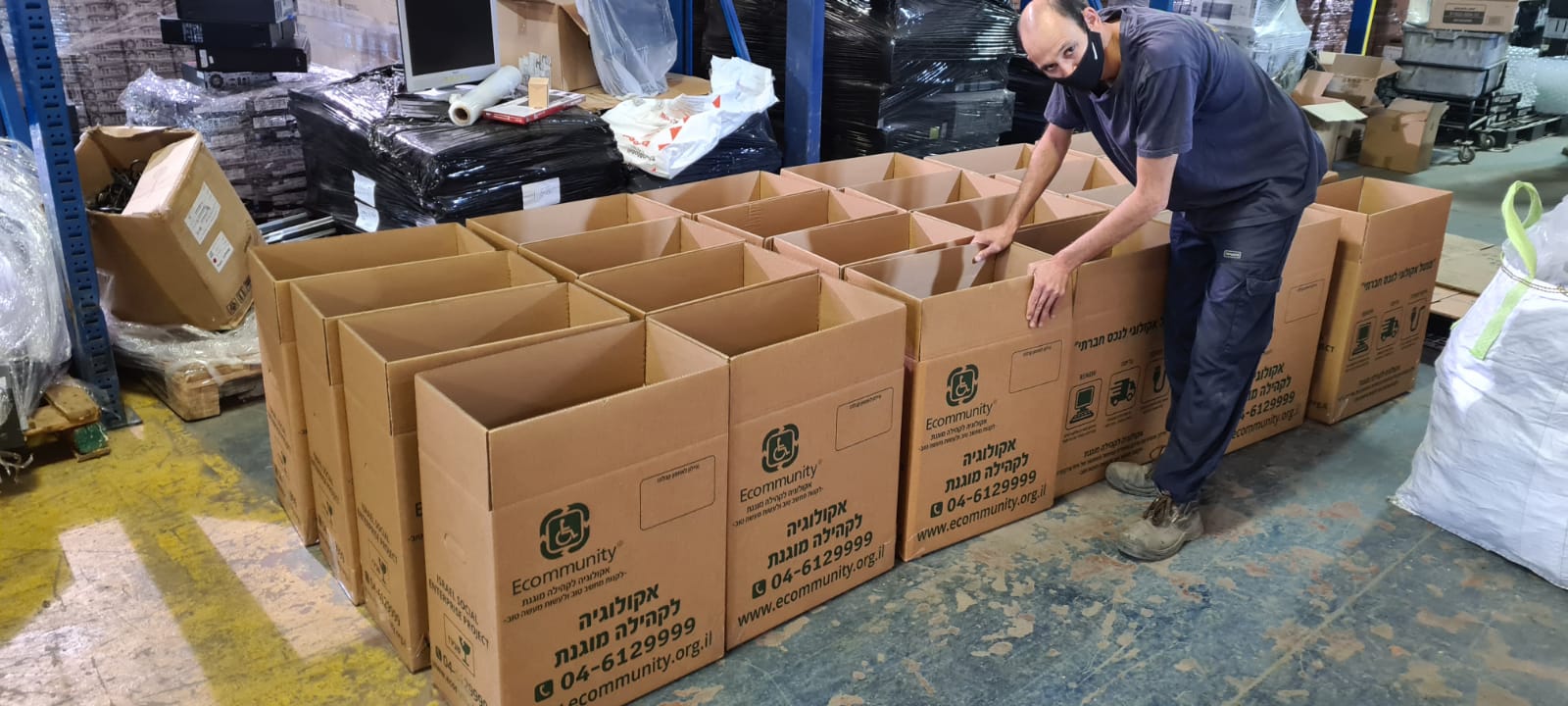
In the third Ecommunity business, workers feed discarded classified computers and printers into shredding machines that reduce them to flakes. These workers have clearance from the Homeland Security division of the Defense Ministry.
“It was a long process to get clearance, because most of these employees cannot even read,” says de Garcia.
Biggest e-waste processing center in Israel
Ecommunity works out of an industrial facility in Misgav in northern Israel.
“Within three years we will build a new facility in Bar Lev High-Tech Park near Karmiel, and we would love to invite people to partner with us in making this happen,” says Salner.
“It will be the biggest electronic waste processing center in Israel. It will have a lab and a retail shop where you can buy refurbished electronics.”
Ecommunity also plans a museum displaying old and unusual electronic items as well as artworks created by the staff from e-waste.
“It will be an educational center for the public about recycling and about employing people with disabilities,” says de Garcia.
Equal opportunity
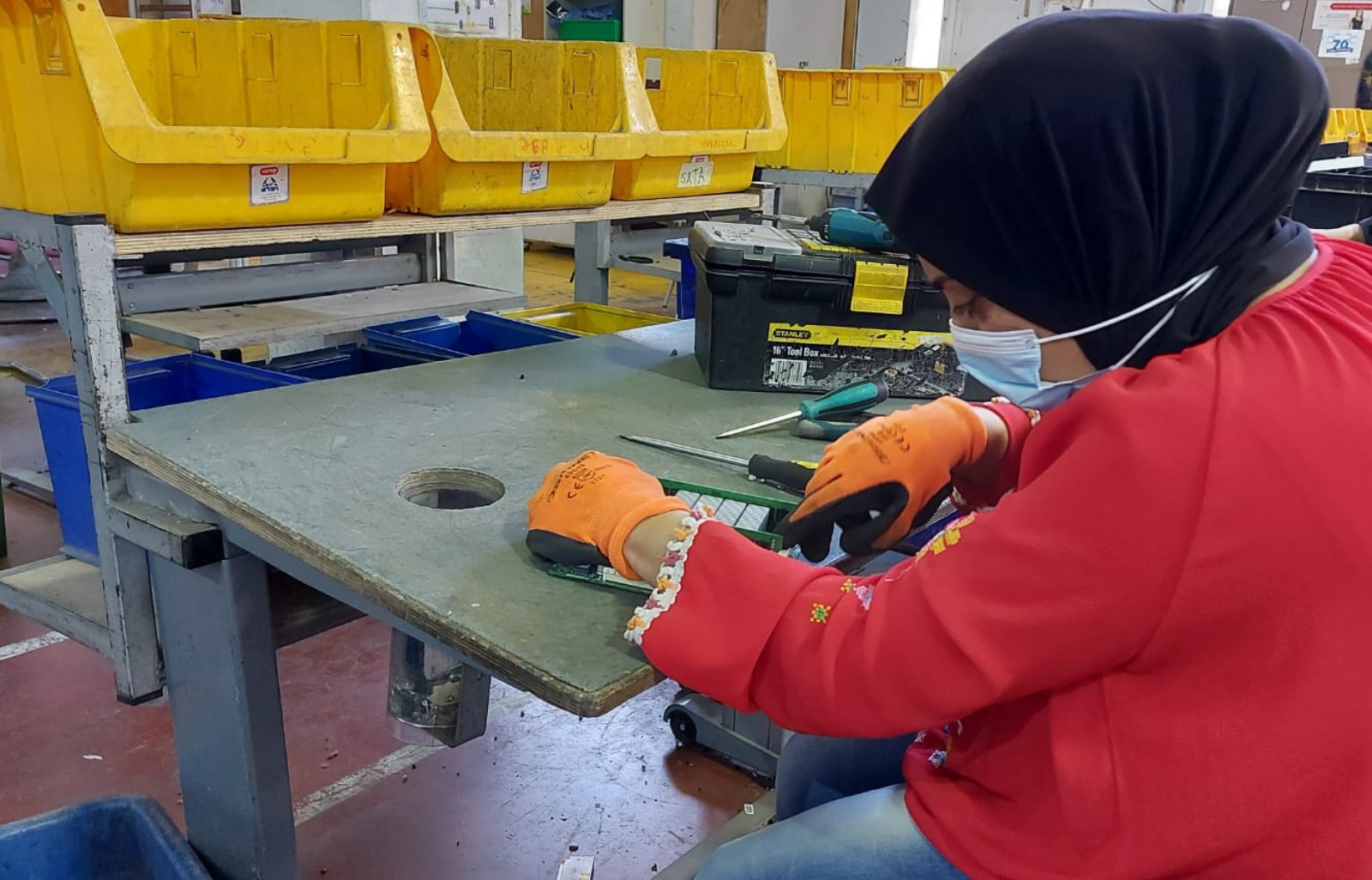
Ecomunity’s staff includes a roughly equal number of Jews and Arabs, men and women.
“I have four managers who are women,” de Garcia says.
“One of them will head our NGO, From Dependence to Independence, which teaches children about recycling and about the integration of individuals with special needs into society’s workforce. This is the most important part of what we do.”
The couple who met and fell in love at Ecommunity has been together almost six years. “It was an exciting moment for us when he gave her an engagement ring last year,” says de Garcia.
Though the coronavirus pandemic has presented challenges for Ecommunity, the need for refurbished computers has never been greater as many children are attending classes virtually.
“We really have potential to make the world better,” concludes de Garcia.




